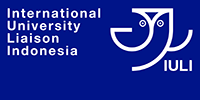
In this Sixth Semester, the students of Industrial Engineering IULI for the course of System Design 2 are given real job experiences as consultants with the crucial task of improving a current company’s system. The students were asked to choose with which company they could perform that system performance improvement project.
The group was divided into two, each consisting of three people. One group consisted of Cornelis Sutopo, Raditya Krishnayudha and Steven Dwisetya and the other of Adinda Hanifa, Almira Naila and Dea Mareta. Additionally, to make this class more interesting and intriguing, Mr. Ir. Invanos Tertiana, MBA., as the lecturer of this course, took the opportunity to create a simple but challenging competition between these two groups to see which groups made more visible progress during the working weeks as judged by the presentation delivered by each group, based on their respective progress in the study at hand.
The companies that were eventually selected by each group were PT High Apparel Indonesia, a company working in the field of Garment & Textile Industry and PT Kanayakan Bagus Kreasi, a steel fabrication company. The essence of this project was the hope that we could learn how the mechanism of each company works and thus know where to improve it, by studying the company from its organizational system to its core production system. Only then was each group able to create a problem statement for the company and make a hypothesis for an executional solution of the problem with KPI Hierarchy method, where the KPI Hierarchy can map the aspects and detect which can be improved. Aside from this approach, we were also taught and encouraged to develop a personalised framework for each company and the specific issues we were tackling. This framework served as another major guideline-the how-to and also how to support the bigger view, which was illustrated in the KPI.
All of the processes revolving around improvement could be achieved by integrating the exploratory and descriptive research methods. In this sense, the exploratory research helped us to provide insights into and an understanding of the problem faced by both the companies and our research team. Descriptive research, on the other hand, helped us mainly, as mentioned above, in distinguishing the various functions and thus the characteristics of the companies and its system, thus, knowing where to improve.
At the end of the eighth week, each group retrieved the original data directly from the selected company. Of course, for data retrieval, there are procedures due to the sensitivity of the data. Data collection is not only a document that can be shown but also done with direct observation, anonymous survey handouts and one-on-one interviews with the workers. All of these steps are done in the hope of maintaining the accuracy and precision of the data obtained that will be further analysed.
After obtaining the data, each student can create a solid Gap analysis, which determines the current condition of a company in each respective field and the expected condition that should be achieved by the company. Conclusions were reached that allowed us to suggest related solutions that were eventually presented in the classroom as well as in the company in the final weeks of the semester. Presenting directly in front of the related company proved to be another challenge of its own as we had to discuss the shortcomings of the company, even in front of its owner, while trying to suggest a number of improvements that could be implemented and executed.
Thankfully, though full of struggle, in the end everything turned out smoothly, although numerous problems appeared throughout our journey but were effectively resolved. Our utmost thanks and praise go to God Almighty, who blessed us throughout our research and study journey. Thank you also to the companies, PT High Apparel Indonesia and PT Kanayakan Bagus Kreasi, were, through our constant interactions, willing to aid us, the students of Industrial Engineering Semester Six IULI and also the workers who were willing to be interviewed and filled in surveys to share their gripes, opinions, feelings and views while engaging in their companies respectively. Certainly, most importantly, thanks to to our lecturer, Mr. Ir. Invanos Tertiana, MBA., who through his guidance and constant support enabled us accomplish this task successfully.
In the end, the results we collect will be presented as thesis works and presentation on the project of system performance improvement. These final documents will also be supplemented by other vital documents such as contact reports, data analysis and reports. Also, most importantly, there are signed agreements from our respective companies that signalled agreement on implementing our proposed solutions to their systems.
Lastly, from all of us, we are able to comprehend that although it is tiring and highly time-consuming, through these collective experiences of being a consultant for this semester, we are able to gain useful knowledge, insights and tangible practices that we believe will benefit us not only in our studies but also in our future job prospects.


